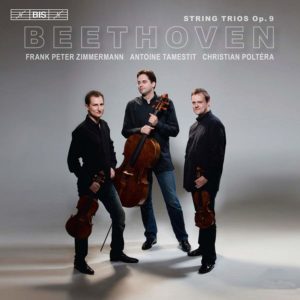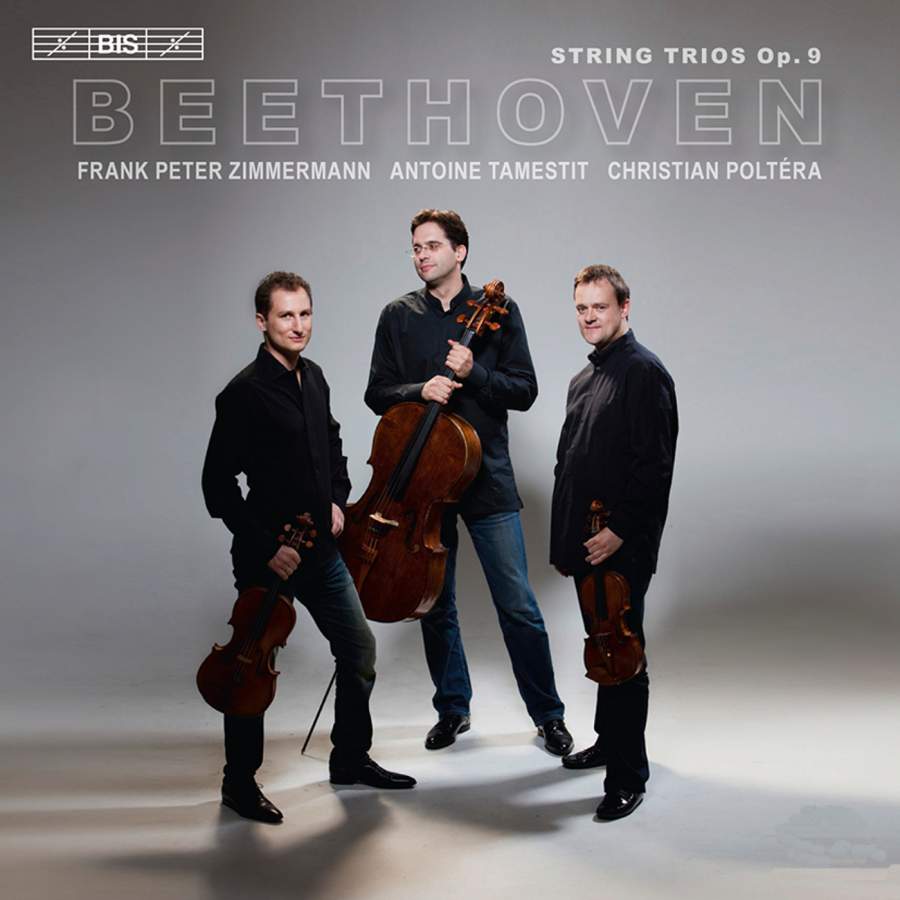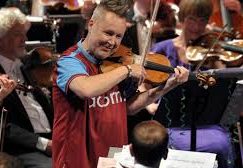A Beethoven a Day: At 26, he topples his teacher
mainWelcome to the 25th work in the Slipped Disc/Idagio Beethoven Edition
String trios opus 3, opus 9 (1796-99)
It’s fascinating to watch Beethoven find his feet in Vienna, the toughest music scene in the world and the one with most opportunities. First he publishes three piano trios, next three piano sonatas and then he sets out his stall with a string trio, a form that is not yet marketable. Haydn tried one work for violin, viola and cello without much successs, Mozart also once. The king of the string trio was Johann Georg Abrechtsberger (1736-1809), who happened to be Beethoven’s counterpoint teacher. The young man reckoned, quite rightly, that he could do it better.
Beethoven’s first string trio has six movements, so there. He’s not just toppling the market leader but completely rewriting the form. It is 40 minutes long, about twice the estimated tolerance for a Viennese chamber audience, and it is deliciously playful, tripping from one tune to another and changing speeds like a Formula-1 driver.
My personal standby version is played by the Italian String Trio (1970) – Franco Gulli, Bruno Giuranna and Giacinto Caramia – in the sunniest, least provocative fashion. If you want something a lot stronger, go to Leonid Kogan, Rudolf Barshai and Mstislav Rostropovich in a 1956 Moscow studio where one senses that music affords the players great relief from the grim environment. Three large egos become one in this performance, each enhanced by the others.
Bigger egos still in the 1957 Hollywood studio recording by Jascha Heifetz, William Primrose and Gregor Piatigorsky. Too big, like Cadillacs, to give way at major junctions but never less than enjoyable. I was hoping for the best of all possible worlds in Anne-Sophie Mutter, Bruno Giuranna and Rostropovich in Paris, 1988, but the three don’t quite hit it off.
The same musicians fill out their release with the Serenade opus 8 and the second set of three string trios, opus 9. In the three years from the first string trio to the next, Beethoven leaps from young bounder to major player. The last of the second set of trios, in C minor, is the gateway to maturity, anticipating his great body of string quartets. This third trio is Beethoven fully formed. After the opus 9, he never bothers again with string trios. He has said all he wants to.
In addition to the above ensembles, I would urge you to sample in the opus 9, the wiry and athletic Franz Peter Zimmermann trio. And the ultra-civilised Grumiaux Trio with playing that never turns a hair.







Thanks for this.
Mozart’s one contribution to the string trio is, of course, astounding.
Concerning the “ultra-civilised” recordings of the Grumiaux-trio its perhaps intesting to know that Grumiaux chamber music recordings are mostly first takes without corrections. Grumiaux would agree to play a piece just once and only exceptionally could be persuaded to play another time for patching or correction. While this put great stress on his fellow-musicians it still makes these recordings stand out for their freshness and spontaneity.
Opus 3 is a divertimento modeled on Mozart’s K563 from eight years earlier: same key, same number and pattern of movements, same length.
Basic English revisited
Sorry to ruin the party here, but when you see the verb ‘topple’, someone or something is going down.
In this case, Beethoven doesn’t defeat or beat his teacher in a contest or in the first round, he simply does it better. He SURPASSES his teacher.
Frank Peter not Franz
Mozart’s Divertimento in E-flat is sometimes called the greatest string trio extant, The recoriding by Heifetz, Primrose, and Feuermann makes a good case for that. I dearly love Beethoven’s string trios, especially this big E-flat, but strangely do not recall Haydn’s string trios at all.
What about the Leopold String trio on Hyperion.
Also very fine performances matched by great sound.
When you say “completely rewriting the form”, I think you meant to say “slavishly and slightly clumsily copying Mozart’s K.563”. (See also the Op.16 piano and wind quintet: another rather heavy-handed Mozart rip-off).
I love Op.3 dearly but no-one who’s played both works would put it in the same class: Mozart’s mastery and Beethoven’s inexperience can be felt in your very fingers. Now, the Op.9 trios are masterpieces: no two ways about it. I’d even argue that they’re greater, more finished, achievements than the Op.18 quartets. No string trio since comes close – though it’s never really been a popular medium. Too demanding to do well, too easy to do badly.
Also going way back
Jean Pougnet,Frederick Riddle and Anthony Pini
They recorded nearly all the string trio repertoire in a week of rehearse record sessions in Vienna I believe for Westminster label.